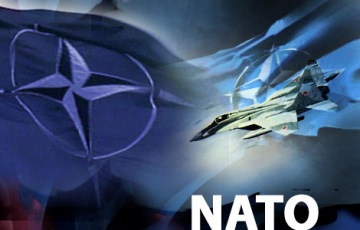Amid the global economic crisis, the security guard industry remains a haven for those Russians not afraid of danger or boredom.
The Russian private security business has seen a number of cuts and layoffs in the last year. However, the workforce still accounts for up to 750,000 guards, making it one of the biggest in the country.
Aleksandr Mikhin, a spokesperson for a Moscow-based Alligator Security Company, which has been in business for 16 years, says companies have started reconsidering their contracts with security firms, trying to optimize their spending.
But security is usually the last thing businesses are ready to sacrifice. And in an economy such as this, increased concern about crime, vandalism and terrorism is forecast to raise the need for security.

Adil Mukashev, an independent expert on terrorism issues based in Almaty, Kazakhstan, said the security firms will likely employ ex-military from Russia’s mainly Muslim North Caucasus region, where an Islamist insurgency is raging.
“This will kill two birds with one stone — give men work in a region with high unemployment and drive them away from radical Islam,” Mukashev told Reuters.

An interesting little side fact is that I get a lot of readers from Russia checking out the blog. With over 750,000 guards in Russia, now I know why! lol But what is really interesting is the idea of exporting this pool of guards to protect Russian assets abroad. This is the territory I like to explore.
The article only mentioned oil and mineral assets abroad, but there are other areas that would be of Russia’s best interest to take part in. Specifically, if they plan on allowing NATO to use their railways to transport weapons and whatnot. This will make railways a bigger target for terrorists, and increased traffic will increase exposure. Especially in Northern Afghanistan, because the Taliban and company will do all they can to attack that railway or to steal from it. For investors to trust these lines, there must be adequate security for them.
Private security firms also allow Russia to participate in Afghanistan, and yet not appear to be involved militarily with it’s own troops. So if they want to help NATO and get some sweet deals in return (dealing with Georgia, etc.), as well as not get sucked in militarily into Afghanistan, they could easily assist via private military firms. Trainers for all types of things, like police or military, or even the pilots of all these Mi-17’s that Afghanistan is buying, could all be drawn from private firms.
Add to that the legions of Afghan war veterans that Russia has who could be called upon for these contracts. That’s if Russian parliament says it’s cool? The money is what will be doing the talking here, as well as the security situation and unemployment realities of that country. All I know is NATO seems to be pretty interested in including Russia into the Afghan game.
There is also the maritime security industry, and I am sure Russia would be eyeing ways to protect their shipping assets privately as well. These companies could also offer their services elsewhere, if legally allowed to do so by Russia.
I am also interested in the other quote up top about using this as a means of employing out of work folks and keeping them away from Jihad? Would sending them to Iraq to defend a company like LUKOIL be a good thing or a bad thing for a muslim from the Northern Caucasus? –Matt
Russia eyes security firms to defend assets abroad
Russia to continue supplying Afghan army and police
Hold it right there

Russia eyes security firms to defend assets abroad
October 28, 2010
* Russia wants private security for assets in conflict zones
* Ex-military personnel could be from volatile N. Caucasus
By Amie Ferris-Rotman
Russia is preparing legislation to set up private security firms using ex-soldiers and police to protect its oil, gas and mineral holdings in conflict zones abroad, a lawmaker and ex-KGB officer said in an interview.
Up to 1,000 security personnel would operate along the lines of U.S. and British private security firms, said Gennady Gudkov, a deputy in Russia’s lower house of parliament, known as the Duma.
“It will be expensive but unfortunately it is very necessary,” said Gudkov, an influential member of the pro-Kremlin Fair Russia party and a former KGB officer who sits on parliament’s safety committee.
“As long as Russian firms are operating abroad, this is in the interest of the state,” he told Reuters, referring to Russia’s need to protect strategically important companies.
(more…)
![]()

